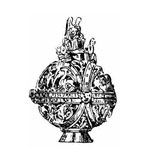
Traditionis Custodes: Taking a Bulldozer to an Anthill
TRADITIONALISTS AND POPE FRANCIS
In January 1985 President Ronald Reagan, a Republican, signed the Mexico City Policy, which prohibits federally funded nongovernmental organizations from performing or promoting abortions in foreign countries. The next Democrat elected to the office, Bill Clinton, in his first presidential act in January 1993, revoked the Mexico City Policy. The next Republican president, George W. Bush, reinstated it in January 2001. And on it went, back and forth: Obama revoked it; Trump reinstated it; and, naturally, Biden revoked it.
There’s a dreary predictability to all this. Depending on whether a Democrat or a Republican holds the high office, you know whether the Mexico City Policy is in effect. It’s a policy subject to the political pendulum.
It is fair to wonder, with Pope Francis’s promulgation this July of Traditionis Custodes, his motu proprio restricting the celebration of the Traditional or Tridentine Latin Mass (TLM), whether we’ve reached a similar stage in ecclesial politics.
Back in July 2007, Francis’s predecessor, Pope Benedict XVI, promulgated Summorum Pontificum, his own motu proprio granting free access to the TLM to the “no small numbers of faithful” who favor the “extraordinary form” of the Roman rite. Summorum Pontificum empowered the laity and established official grievance procedures. Benedict decreed that in parishes “where there is a stable group of faithful who adhere to the earlier liturgical tradition,” pastors should “willingly accede to their requests” for the celebration of the TLM. If this group does not receive “satisfaction from the pastor,” they are to inform their diocesan bishop, who “is strongly requested” to satisfy them. If the bishop “cannot arrange for such a celebration,” they are to refer the matter to the Pontifical Commission Ecclesia Dei.
With Traditionis Custodes, Pope Francis has undone all that. He has proscribed the power of the people and placed it in the palms of prelates. “It belongs to the diocesan bishop, as moderator, promoter, and guardian of the whole liturgical life of the particular Church entrusted to him, to regulate the liturgical celebrations of his diocese,” Francis writes. “Therefore, it is his exclusive competence to authorize the use of the [TLM] in his diocese, according to the guidelines of the Apostolic See.” It should be noted that the Pope pre-emptively cut off the faithful’s recourse to an office higher than that of their local ordinary: He suppressed the Pontifical Commission Ecclesia Dei in 2019, merging it with the Congregation for the Doctrine of the Faith.
You May Also Enjoy
Peter’s Pence doesn’t solicit funds for financial speculation that fattens the Vatican’s investment portfolios; the fund shouldn’t be used that way.
In the early part of the 20th century, the average Catholic was secure in his knowledge that he had arrived at the Truth and was striving to live it.
The bishops feign “pastoral accommodation” for those Catholics about whom the dirty little secret is that they wouldn’t come to Mass anyway.

